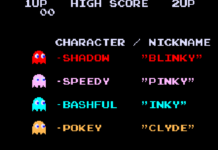
For those who don’t know, WebKit is today’s predominant layout engine, used by the major web browsers on almost all platforms. Examples are Safari on OS X, Windows and iOS, or Google Chrome on OS X, Windows, Linux, Android, to name only a few (1).
Contrary to Internet Explorer 6, which was solely in the hands of Microsoft, WebKit is open source software, with many big companies and smaller developers contributing to the code base. The development of WebKit is being pushed heavily, especially by Apple and Google, and that’s where problems start to arise: Many sites, especially those in the mobile space, are developing solely for WebKit-equipped browsers and devices, leaving other browsers, and thus devices, behind.
Daniel Glazman, co-chairman of the W3C CSS Working Group, wrote an article last week, addressing the Working Group members, browser vendors and web developers in general, describing the problem this way:
the mobile Web is full of works-only-in-WebKit web sites while other browsers and their users are crying. Many sites are sniffing the browser’s User-Agent string and filtering out non-WebKit browsers. As in the past with IE6, it’s not a question of innovation but a question of hardware market dominance and software bundled with hardware. But there is an aspect of the problem we did not have during the IE6 era: these web sites are also WebKit-specific because they use only “experimental” CSS properties prefixed with
-webkit-*and not their Mozilla, Microsoft or Opera counterparts. So even if the browser sniffing goes away, web sites will remain broken for non-WebKit browsers
If nothing is done to stop this process we’ll end up with a situation similar to the days when IE6 was the dominant browser, only worse, because WebKit is also the most widely used layout engine on mobile devices:
“Without your help, without a strong reaction, this can lead to one thing only and we’re dangerously not far from there: other browsers will start supporting/implementing themselves the
-webkit-*prefix, turning one single implementation into a new world-wide standard. It will turn a market share into a de facto standard, a single implementation into a world-wide monopoly. Again. It will kill our standardization process. That’s not a question of if, that’s a question of when.”
To prevent this from happening, Glazman urges developers to put more effort into making their sites compatible with all modern browsers. He also urges the companies that most forcefully push the development of WebKit (he names Apple and Google) to submit complete technical proposals of the proprietary CSS-like technologies that they’ve been using in iOS, Android and their other browsers to the CSS Working Group so they can be properly standardised and made available to all web browsers.
Glazman’s “Call for Action” might seem a little over the top at first sight, but this issue is not to be easily dismissed, as those of us who remember the IE6 times can attest.
Source: Glazblog/
Hat tip to heise.de
- WebKit is also used in many lesser known web browsers and Single Site Browsers around the web. Even browsers on RIM’s and Nokia’s devices tend to use the WebKit rendering engine. ?






